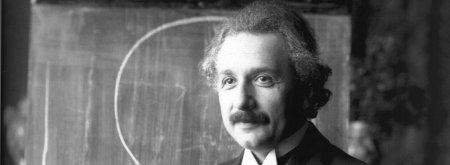“This House Believes God is a Delusion”
On 22 November 2007, the Birmingham University Debating Society considered the motion: “This House Believes God is a Delusion”. Peter May reports on the debate.
Guild Council Chamber
The debate took place in the Guild Council Chamber of the University of Birmingham. Two years ago, the Birmingham University Christian Union was disaffiliated from their Guild as they refused to allow non-Christians to become formal members. This debate provided them with an opportunity to raise the profile of Christianity in a Guild event.
The Debating Society
Normally 30-40 people attend debates in the Guild. On this occasion, an unprecedented attendance of around 250 people packed the Chamber, with many having to sit on the floor.
Debate Format
Four speakers were invited to give 10 minute speeches. After that the student audience were invited to make 3 minute speeches or ask questions. In the event, speeches continued for nearly an hour and no questions were asked of the panel. Each side was allowed a 5 minute closing speech.
Proposing the Motion
Yujin Nagasawa is a lecturer in the university’s Department of Philosophy, where he teaches Philosophy of Religion. He is currently writing a book on The Existence of God. (Dr. Nagasawa stepped in at 48 hours notice to replace Susan Blackmore, who was unable to take part due to illness.)
Julian Baggini edits The Philosopher’s Magazine and writes articles for the national press. Among the many books he has written is A Very Short Introduction to Atheism (OUP).
Opposing the Motion
Krish Kandiah was formerly Director of the Oxford Centre for Christian Apologetics and is currently Director of the Churches in Mission department of UK Evangelical Alliance.
Peter May is a former GP, author of Dialogue in Evangelism and is Chairman of the Universities and Colleges Christian Fellowship (UCCF).
The Debate
Yujin Nagasawa proposed the motion claiming that atheism or agnosticism is the natural default position for humanity. He defined a delusion as an irrational belief and therefore the onus was on those who opposed the motion to provide good arguments for the existence of God. He indicated that he knew of no good grounds for believing in an immaterial, timeless, omnipotent and omniscient perfect being. If such a being existed, why does he allow natural disasters and the killing of innocent children? The idea of such a God is incoherent. Furthermore, if God is immaterial, how could he produce matter?
Peter May replied not knowing in advance that Dr Nagasawa would be taking part. However, he had read Julian Baggini’s book on Atheism. In it he states that the Cosmological Argument is a “disgrace to philosophy” (p.94). However, he mis-states this argument and sets it up as ‘straw man’. He claims that the argument states that everything that exists has a cause. To conclude therefore that God exists merely asserts that God also must have a cause! As developed by William Craig, the argument starts with the premise that everything that begins to exist has a cause. This is not just playing with words. If the uncaused, first cause exists outside of time, nothing could have preceded him. Furthermore, Baggini claims that morality is entirely independent of God, so that Dostoevsky was wrong to assert that without God, anything is permitted (p.37). Peter was therefore keen to test him on both arguments.
Julian Baggini, speaking without notes, initially tried to restate the cosmological argument in his own terms but then admitted that Peter’s version had changed it significantly. He did not then attempt to rebut either the cosmological argument or address the moral argument. Instead he did something which was quite remarkable for a philosopher; he quit the field of argument. Refusing to tackle the two serious arguments that had been put forward, he said that most people’s opinions about God are set at a very early age and are not driven by argument. Rather it depends where in the world you live and what you are brought up to believe. “Faith” drives the argument. Religious people just “know” they are right and arguments can’t beat experience.
Krish Kandiah followed. He stated that ‘proof’ can only be found in the field of mathematics. Christian belief was not a blind, irrational leap but a reasonable trust. He then appealed to the evidence about Christ, the experience of trusting him and the explanatory power of the Christian worldview, which makes sense of our lives and gives meaning and purpose to human existence.
Fourteen short speeches from the floor then followed. The first speaker said the burden of proof was on the theists. He argued that we can believe in the holocaust because it was recent but not in events which were 2000 years ago. He failed to appreciate that the New Testament documents were written close to the events and that such evidence does not weaken with the passage of time. Two thousand years later, they were still written within living memory of the events they describe! Another speaker quoted Sartre as saying that the meaning of our life is what we give it and that Jesus’s existence only means that Jesus existed. Another claimed that morals are relative. Several speakers complained about the wording of the motion, saying that the word ‘delusion’ was insulting. Someone asked what made us what we are, answering that there has to be someone there. Another pointed out that human nature is inclined to self-interest. It is our lack of humility that separates us from God.
Julian Baggini then gave the closing statement for the proposition. He reverted to his theme that you cannot persuade believers. Citing Hinduism and Roman Catholicism, he claimed most religious ideas are vague and mutually contradictory. God is supposed to be everywhere but “I can’t find him”. He confessed that he might be wrong about atheism but a Christian would never admit that he might be wrong about God.
Krish Kandiah concluded for the opposition. He said that the strongest argument he had heard against the existence of God was the fact of suffering. He explained that the Christian understanding is that there are things God cannot do. He cannot make a square circle and he cannot give us free will and at the same time control our actions. They are mutually incompatible things. Furthermore, God does not stand by and watch our suffering but entered our world and endured terrible suffering in Christ to redeem us. Furthermore, he sends us into the world to care for those who are suffering.
Conclusion
The most unsatisfactory aspect of this enjoyable event was that real debate did not take place. Many different statements were made. The main speakers had no opportunity to engage with one another and press home their arguments. Why, for instance, is atheism assumed to be the default position for mankind, when the entire history of humanity shows that every culture has defaulted to religious belief? Neither did the audience use their opportunity to challenge them, preferring instead to make their own speeches. This had a very post-modern feel to it.
The proponents asked for good arguments, but then failed to respond to them! This refusal to engage with them meant they deserved to lose the debate. A show of hands was counted at the beginning and again at the end; the ‘swing’ determined the result. The motion was lost but a great many conversations were started.
The text of Peter May’s opening speech is available here.
Krish Kandiah’s report on the debate was published in the Evangelical Alliance's idea magazine.
© 2007 Peter May



